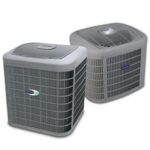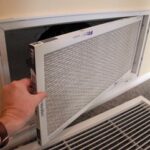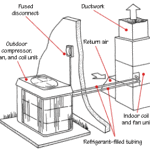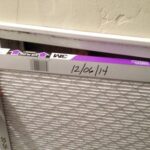Consumer reviews and ratings of various heat pumps on the market. HomeTips offers reviews of Trane, Lennox, and Carrier heat pumps.
Heat pumps on the market today are substantially more energy efficient than models manufactured just a few years ago. New technologies have been integrated into the systems to allow for better heat recovery at colder temperatures. Also, heat pumps today can be used to heat water for domestic use, radiant floor heating, and multiple-zone forced-air systems.
Here are some basic comparisons of popular models:
Trane XL16i
The XL16i has the highest SEER and HSPF ratings of all Trane residential air-source heat pumps that do not use R22 as a refrigerant. The XL16i uses the environmentally kind R410A refrigerant, which is not harmful to the ozone layer. Under optimal conditions, the XL16i can achieve a SEER rating of up to 17 and an HSPF of 9.85. The unit also comes with a two-stage cooling setting that allows for more-energy-efficient heating and cooling during mild temperatures and a more even flow during start-up periods.
Depending on the model, the Trane XL16i air-source heat pump has a 2- to 5-ton cooling capacity. Despite the high output, the XL16i is relatively quiet with a nominal sound rating of 74 decibels (dB). For forced-air systems, Trane also offers an air-filtration upgrade to remove pollen, dust, and other possible irritants.
Dave Lennox Signature Collection XP19
Lennox has made considerable improvements to the insulation and design of its heat pumps, offering one of the quietest models available. A redesigned fan grille and proprietary technologies have brought the XP19 noise level down to around 69 dB, or about as loud as casual conversation.
The XP19 exceeds Energy Star requirements with ratings of up to 18.6 SEER and 9.3 HSPF. This, coupled with a two-stage compressor that is designed to run on low speed 80 percent of the time, makes the Lennox unit one of the most energy frugal on the market today.
The XP19 also has dual-fuel capability, which allows it to work with a gas furnace. This in turn allows for more-efficient heating options during periods of extreme cold when air-source heat pumps are less likely to perform at optimal energy-saving levels. The unit also offers a whole-house dehumidification system as an optional upgrade.
Carrier Infinity 19 Heat Pump
The Infinity 19 air-source heat pump by Carrier is a two-stage unit that uses Puron instead of R22 as a refrigerant. Puron is an environmentally sound refrigerant designed not to harm the earth’s ozone layer and is used in most of the Carrier product line.
The Infinity 19 model operates with a moderate to low noise output around 70 dB, or about as loud as a refrigerator or fan. The Infinity 19 has an energy rating of 19 SEER and up to 9 HSPF.
Along with a humidity control and air-filtration upgrade, the Infinity 19 can also be equipped with the Infinity Control programmable thermostat. This device allows for remote access, so you can adjust room temperatures via the Internet or telephone. It can manage seven days’ worth of programming for up to eight specific heating zones.
The Infinity 19 comes with a 10-year limited warranty on the compressor and a 5-year limited warranty on other parts.
NEXT SEE:
Heat Pumps Buying Guide
Heat Pump Efficiency Rating & Sizing
Heat Pump Controls & Options
How a Heat Pump Works



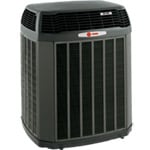
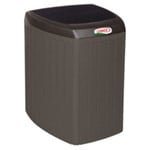
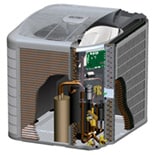
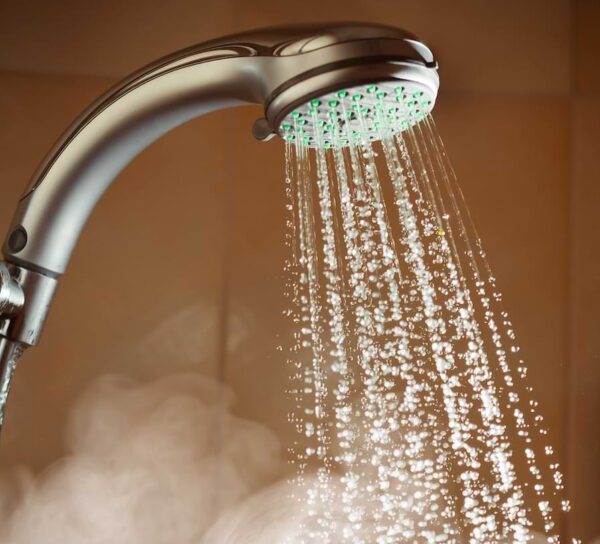


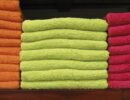
 Don Vandervort writes or edits every article at HomeTips. Don has:
Don Vandervort writes or edits every article at HomeTips. Don has:
